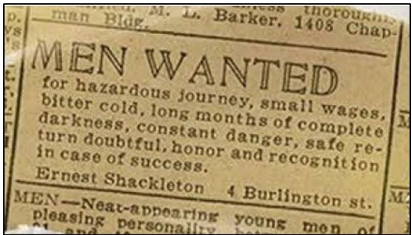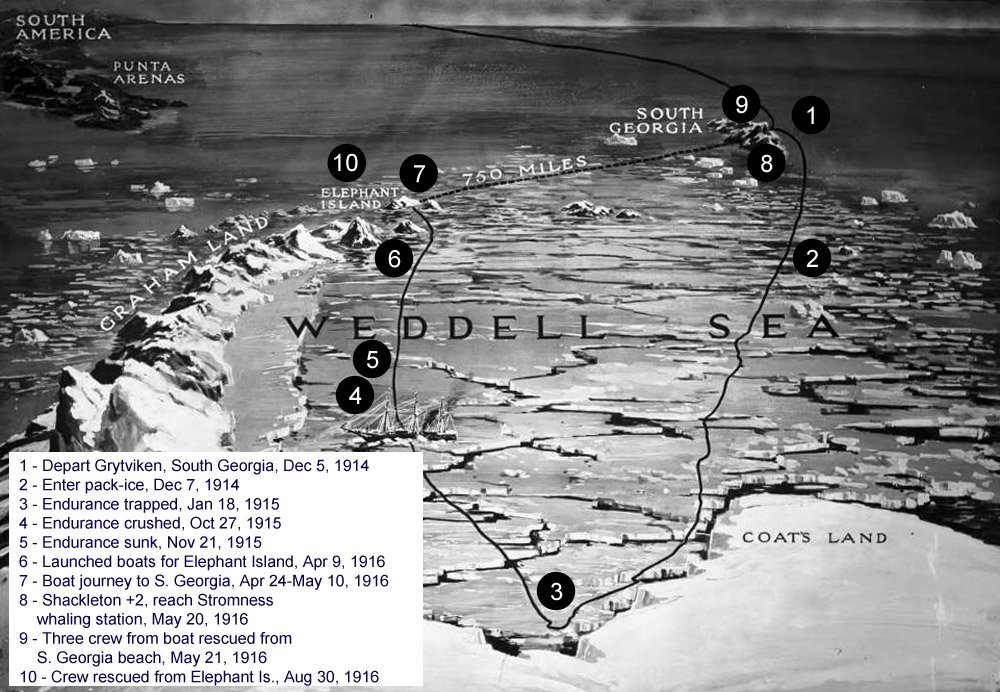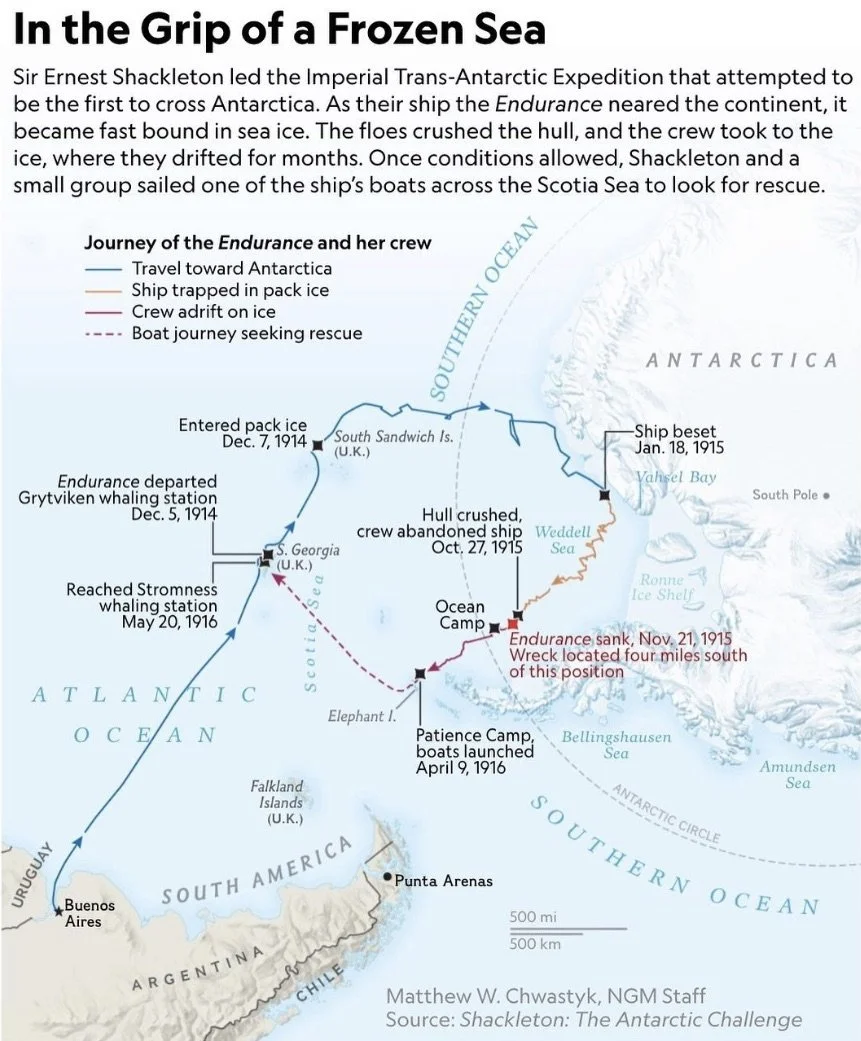Endurance by Lansing
Ref: Alfred Lansing (1959). Endurance. Unk.
______________________________________________________________
Summary
The harrowing survival story of Shackleton’s and his 27-man crew’s 1914-1916 Expedition to the South Pole. After their ship, the Endurance, became locked and crushed in an island of ice, they attempted a seemingly-impossible journey over 850 miles of the South Atlantic's heaviest seas to the closest outpost of civilization.
Fortitudine vincimus: By endurance we conquer.
They were for all practical purposes alone in the frozen Antarctic seas. It had been very nearly a year since they had last been in contact with civilization. Nobody in the outside world knew they were in trouble, much less where they were. They had no radio transmitter with which to notify any would-be rescuers, and it is doubtful that any rescuers could have reached them even if they had been able to broadcast an SOS. It was 1915, and there were no helicopters, no Weasels, no Sno-Cats, no suitable planes. Thus their plight was naked and terrifying in its simplicity. If they were to get out—they had to get themselves out.
______________________________________________________________
Misc Quotes
In that instant they felt an overwhelming sense of pride and accomplishment. Though they had failed dismally even to come close to the expedition's original objective, they knew now that somehow, they had done much, much more than ever they set out to do.
Of all their enemies -- the cold, the ice, the sea -- Shackleton feared none more than demoralization.
Unlike the land, where courage and the simple will to endure can often see a man through, the struggle against the sea is an act of physical combat, and there is no escape. It is a battle against a tireless enemy in which man never actually wins; the most that he can hope for is not to be defeated.
In some ways they had come to know themselves better. In this lonely world of ice and emptiness, they had achieved at least a limited kind of contentment. They had been tested and found not wanting.
The whole undertaking was criticized in some circles as being too "audacious." And perhaps it was. But if it hadn't been audacious, it wouldn't have been to Shackleton's liking. He was, above all, an explorer in the classic mold—utterly self-reliant, romantic, and just a little swashbuckling.
Whatever his mood—whether it was gay and breezy, or dark with rage—he had one pervading characteristic: he was purposeful.
I long for some rest, free from thought.
From studying the outcome of past expeditions, he believed that those that burdened themselves with equipment to meet every contingency had fared much worse than those that had sacrificed total preparedness for speed.
Nor did the Antarctic represent to Shackleton merely the grubby means to a financial end. In a very real sense he needed it—something so enormous, so demanding, that it provided a touchstone for his monstrous ego and implacable drive. In ordinary situations, Shackleton's tremendous capacity for boldness and daring found almost nothing worthy of its pulling power; he was a Percheron draft horse harnessed to a child's wagon cart. But in the Antarctic—here was a burden which challenged every atom of his strength. Thus, while Shackleton was undeniably out of place, even inept, in a great many everyday situations, he had a talent—a genius, even—that he shared with only a handful of men throughout history—genuine leadership. He was, as one of his men put it, "the greatest leader that ever came on God's earth, bar none.
The simple act of sailing had carried him beyond the world of reversals, frustrations, and inanities. And in the space of a few short hours, life had been reduced from a highly complex existence, with a thousand petty problems, to one of the barest simplicities in which only one real task remained—the achievement of the goal.
They had been the underdog, fit only to endure the punishment inflicted on them. But sufficiently provoked, there is hardly a creature on God’s earth that ultimately won’t turn and attempt to fight, regardless of the odds.
And yet they had adjusted with surprisingly little trouble to their new life, and most of them were quite sincerely happy. The adaptability of the human creature is such that they actually had to remind themselves on occasion of their desperate circumstances.
______________________________________________________________
Chronology
8 Aug, 1914- 30 Aug, 1916: Shackleton’s Endurance Expedition.
30 Aug, 1916: Shackleton’s remaining crew are rescued from Elephant Island by the Chilean steam tug Yelcho.
20 May, 1916: Shackleton, Worsley, and Crean reach Stromness Whaling station.
24 Apr- 10 May, 1916: Shackleton, with Worsely and four men, sail the James Caird from Elephant Island to South Georgia.
9-15 Apr, 1916: Shackleton’s crew sails from Antarctic Sea Ice to Elephant Island.
21 Nov, 1915: The Endurance sinks.
27 Oct, 1915: The Endurance is crushed by the ice.
18 Jan, 1915: The Endurance is trapped in pack ice only 60nm from the Antarctic continent.
5 Dec, 1914: The Endurance sets sail from S. Georgia enroute Antarctica and runs into pack ice a full thousand miles further North than expected.
8 Aug, 1914: The Endurance sets sail from England; the expedition to the South Pole is led by Shackleton and the ship is captained by Frank Worsley.
______________________________________________________________


